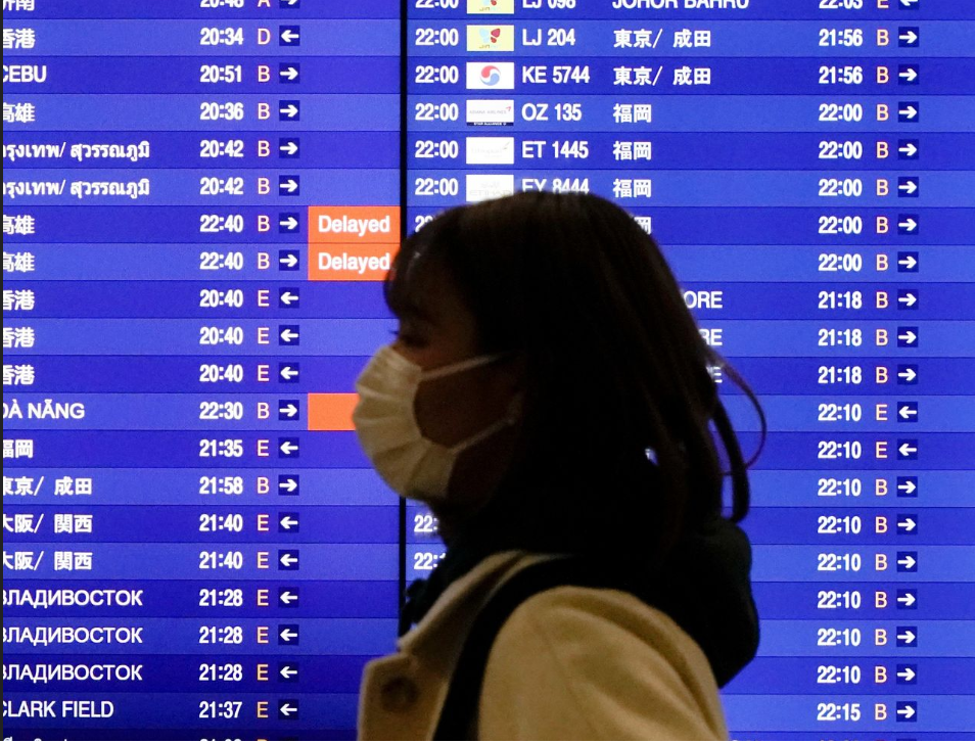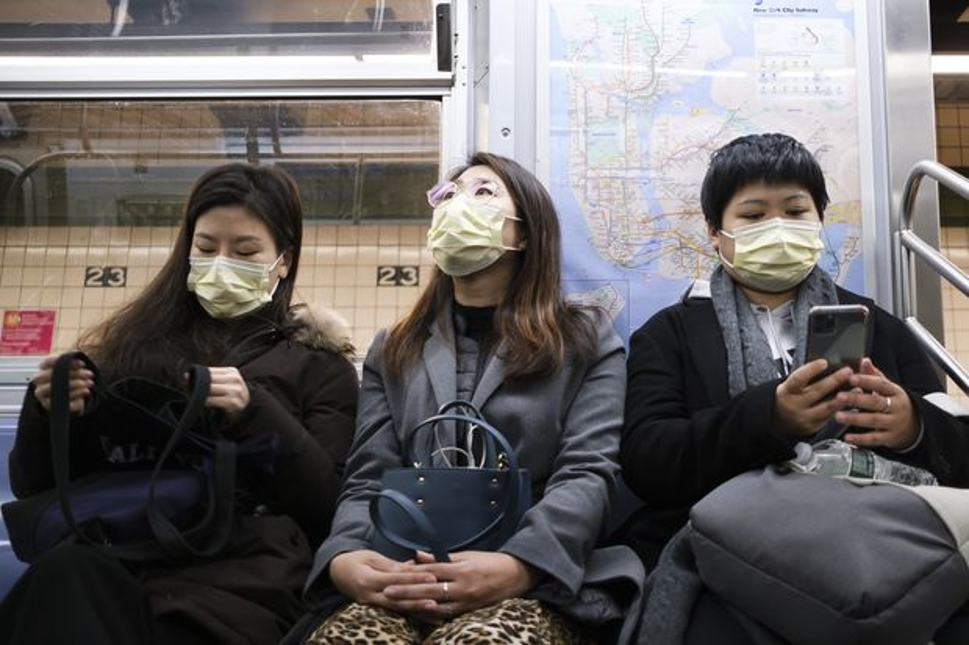
The threat of the new coronavirus has grounded flights between China and much of the rest of the world, and prompted precautions by travelers elsewhere. The biggest concern on airplanes is transporting the virus to other countries. Still, viruses spread through coughing and sneezing on others can infect people on airplanes if they are within a couple of rows of sick travelers. KIM HONG-JI Source: The Wall Street Journal
Worried about air travel amid the global health crisis? Wash your hands.
Health experts say the best protections you can undertake are the same prescribed for avoiding flu, common cold and other viruses: washing hands frequently and using hand sanitizers. On airplanes, open the air vents and aim them at your face to breathe filtered air.
Though much of the focus of the novel coronavirus outside of China has been on travelers, riding on airplanes doesn’t expose you to any greater risk than other situations where you are in close contact with possibly sick people: subways, movie theaters, lines at the grocery store.
But flying does put you in close contact with people, and studies have shown that travelers have a higher risk for getting sick. One study pegged the increased risk of catching the common cold at 20% if you’re on a plane.
Research in 2009 tracing H1N1 flu transmission on a flight found that 2% of passengers had the disease during the flight and 5% came down with the disease within a week after landing. Coach passengers were at a 3.6% increased risk of contracting H1N1 if they sat within two rows of someone who had symptoms in-flight. That increased risk for post-flight disease doubled to 7.7% for passengers seated within a two-seat hot zone in any direction.
Another study modeling risk between economy class and first class concluded with the obvious: the chances of exposure are lessened if there are fewer people around you. If a flight is full, there would be less chance of getting infected in first class compared with coach. But the odds could be flipped if first class is full and economy class isn’t.
Health organizations haven’t issued warnings about air travel itself, other than to China. Airlines report no significant cancellations in domestic travel. Companies are still asking employees to travel for work—except to China.
The concern about air travel is that airplanes do transport the virus by moving infected people around the globe. Thus the flight bans to China and screening of travelers arriving in the U.S. who have been in China.
The Centers for Disease Control and Prevention says people need not take special precautions. (You’ll find excellent CDC travel advice here.)
“We do not currently recommend the use of face masks for the general American public,” Dr. Nancy Messonnier, director of the National Center for Immunization and Respiratory Diseases, said Friday during a telephone news conference. “This virus is not spreading in your communities.”

The new coronavirus, like flu and other viruses, spreads when people are in close contact and has prompted subway riders, like these three in New York, to take precautions. Experts say regular paper surgical masks may not block the virus, however. Masks known as N95 respirators offer the most coronavirus protection. PHOTO: JUSTIN LANE/EPA-EFE/SHUTTERSTOCK Source: The Wall Street Journal
Coronavirus is a respiratory virus that is thought to be transmitted through tiny droplets excreted by coughing and sneezing. Research on other viruses has shown that on an airplane, you are at risk if you are within two or three rows of an infected person—basically the distance a droplet might travel.
Air on airplanes is generally isolated to specific zones—the air in your zone gets sucked in and recirculated in the same zone. In addition, most aircraft flying today pass recirculated air through a series of filters 20 to 30 times an hour. The filters used, called High-Efficiency Particulate Air, or HEPA, filters, are hospital-operating-room grade and capable of removing 99.9% of particulate such as bacteria, fungi, larger viruses and virus clumps, according to the CDC.
“The cabin air environment is not conducive to the spread of most infectious diseases,” the CDC says in a briefing on air travel.
The World Health Organization says its general recommendations for travelers apply to coronavirus:
* Frequently clean your hands by using alcohol-based hand rub or soap and water.
* When coughing and sneezing, cover your mouth and nose with flexed elbow or tissue, throw that tissue away immediately and wash hands.
* Avoid close contact with anyone who has a fever and cough.
* If you have a fever, cough and difficulty breathing, seek medical care early and share previous travel history with your health-care provider.
If you’re traveling back to the U.S. from abroad, you may want to get to the airport even earlier than normal. As of Sunday, the Trump administration required airlines to check if passengers have been to mainland China in the past 14 days. Some of that may get automated. United, for example, says it is building questions into the check-in flow to take the burden off agents at the airport.
People who have been to mainland China within the previous two weeks must arrive in the U.S. at one of 11 large airports set up to inspect them and, if necessary, quarantine them after they land. If that’s not their arrival point, they’ll get rebooked at no charge. Those airports—New York Kennedy, Chicago O’Hare, San Francisco, Seattle, Honolulu, Los Angeles, Atlanta, Washington Dulles, Newark, N.J., Dallas-Fort Worth and Detroit—represent most international arrivals from Asia, so rebooking is expected to be minimal.
The Department of Homeland Security says U.S. citizens who have been in Hubei province within 14 days of their return will be subject to up to 14 days of mandatory quarantine. U.S. citizens who have been in other areas of mainland China within 14 days of their return will undergo health screening at the airport and be asked to self-quarantine for two weeks. Foreign nationals who have traveled in China within 14 days of their arrival will be denied entry unless they are immediate family of U.S. citizens, permanent residents or flight crew.
A few other Middle Seat tips:
* Airline cleaning of airplanes is scant, so you may want to bring your own disinfecting wipes for public surfaces like tray tables and arm rests.
* If you do want to wear a face mask, you have to get something better than a regular paper surgical mask. Those masks, which are designed to stop your germs from getting out and infecting others, won’t stop the coronavirus from getting in, doctors say. You need a mask called an N95 respirator, which is thicker than a standard mask. Those masks are challenging to put on and wear for long periods.
* If someone near you is sneezing and coughing, ask the person to cover his or her mouth, and then ask a flight attendant to move you to an empty seat. Even a middle seat.
Source: The Wall Street Journal, February 4, 2020 | Scott McCartney